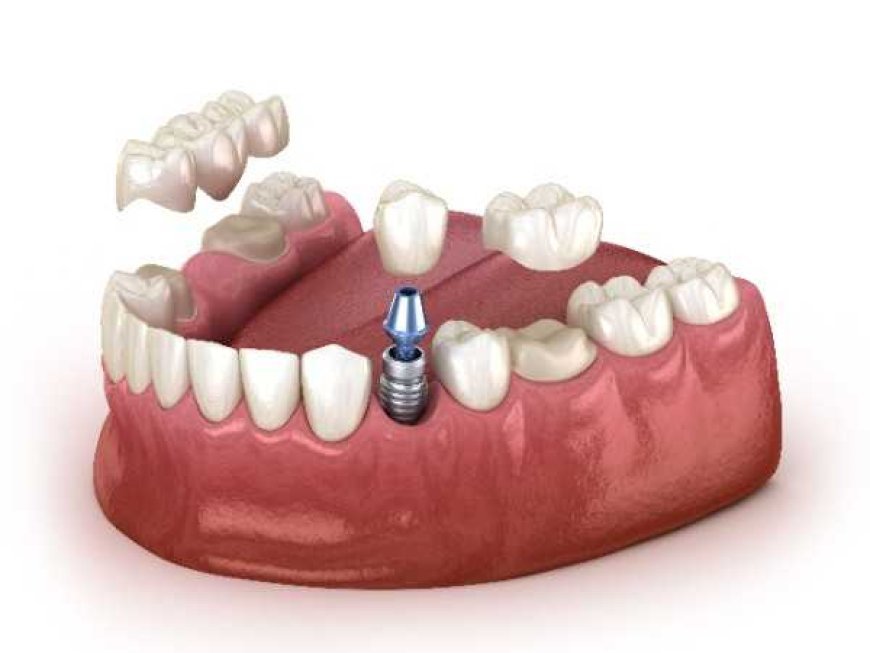Dental Implants That Go the Distance in St Albans

Tooth loss can affect everything from your confidence to your diet, but not all replacements are created equal. Some wear down, some shift, and some simply don’t last. If you’re looking for a long time solution then dental implants are the ones which are reliable and natural-feeling fixtures. In this post, we break down why they’re considered the gold standard for restoring missing teeth—and how they can help future-proof your smile.
Why Dental Implants Are a Long-Term Choice
Dental implants St Albans patients choose often deliver more than just a nice-looking smile—they’re built to last. Unlike temporary solutions, implants are placed into the jawbone, where they act like artificial tooth roots. Over time, the bone naturally fuses with the titanium post in a process called osseointegration. This bond creates a solid and stable foundation, much like your original tooth once had.
Because they’re anchored directly into the bone, implants don’t rely on adjacent teeth for support like bridges do. This not only preserves the health of surrounding teeth but also helps maintain jawbone density, preventing the sunken appearance that can come from untreated tooth loss.
When cared for properly, implants can last anywhere from 15 to 25 years or more, far outlasting traditional dentures or bridges. It’s this combination of strength, stability, and natural function that makes implants a standout long-term option for restoring your smile.

What Makes Implants Different?
Unlike dentures or bridges, implants are fixed in place and do not rely on neighbouring teeth for support. Here's a simple breakdown:
|
Feature |
Dentures |
Bridges |
Implants |
|
Lifespan (average) |
5–8 years |
7–10 years |
15–25+ years |
|
Jawbone preservation |
No |
Partial |
Yes |
|
Risk of slipping/movement |
Yes |
No |
No |
|
Cleaning requirements |
Removed for cleaning |
Flossing can be difficult |
Clean like natural teeth |
Disclaimer: Lifespan varies depending on oral hygiene, health conditions, and lifestyle habits.
The Science Behind Their Staying Power
Dental implants St Albans are typically made from titanium, a metal known for being both strong and biocompatible. Over time, the bone grows around the implant through a process called osseointegration. This creates a solid, stable base that can last for decades.
According to the Association of Dental Implantology, UK implant success rates are over 95% when proper care is taken.
Implants and Orthodontics: Do They Work Together?
Yes, but timing matters. Invisalign St Albans patients often benefit from completing orthodontic treatment before getting implants, since implants don’t move like natural teeth.
Invisalign St Albans can help space teeth properly and align your bite so that your implant has the best long-term support. If you’ve already had implants placed, your dentist can still develop a tailored orthodontic plan around them.
Everyday Benefits That Add Up Over Time
Implants aren’t just durable—they make everyday life easier and more comfortable.
Eating
With implants, chewing feels natural. You can bite into apples, enjoy chewy food, and even crunch crisps without worry. They don’t shift like dentures or create sore spots.
Speaking
Because implants are fixed, there’s no risk of a denture slipping mid-sentence. That stability helps maintain clear speech, an important confidence booster at work or socially.
Appearance
Implants support your jawbone and facial structure, helping to prevent the sunken look that sometimes follows tooth loss. They also hold your other teeth in place, reducing the risk of shifting over time.
Who Might Be a Good Candidate?
Dental implants St Albans clinics generally recommend the treatment if you meet the following criteria:
- You have one or more missing teeth: Implants are ideal if you’ve lost a single tooth or several. They fill the gap securely without relying on nearby teeth. Whether from injury, decay, or age, missing teeth can be restored for both function and appearance.
- Your gums are healthy: Healthy gums are essential for supporting the implant and keeping the area infection-free. Gum disease can interfere with healing and long-term stability. Your dentist may recommend treatment before starting the implant process if issues are found.
- You have adequate jawbone density: Implants need strong bone to anchor into. If bone loss has occurred, it might still be possible with grafting. A simple scan can check whether your jaw has enough support to hold the implant securely.
- You don’t smoke heavily (or are willing to stop): Smoking can reduce blood flow and affect healing after surgery. It also raises the risk of implant failure. Cutting back or quitting entirely can significantly improve your outcome and is strongly advised by dental professionals.
- You’re committed to good oral hygiene: Implants need just as much care as natural teeth. Brushing, flossing, and regular check-ups are key to avoiding complications. A consistent hygiene routine helps your implant last longer and protects your surrounding teeth and gums.
If you’re unsure about bone volume, your dentist may recommend a scan to check. In some cases, a bone graft can be done to make the site suitable for implant placement.
Aftercare: The Key to Longevity
While implants are built to last, they still require good maintenance. Here are a few habits that help prolong their lifespan:
- Brush twice daily with fluoride toothpaste
- Use interdental brushes or floss
- Attend regular dental check-ups
- Avoid smoking and limit alcohol
- Wear a nightguard if you grind your teeth
If you’ve also had orthodontic treatment like invisalign St Albans, continuing to wear your retainers will help keep everything in place.
Cost vs Value Over Time
While the initial cost of implants can be higher than other tooth replacement options, their longevity and low maintenance often make them the more cost-effective choice over time.
Here’s a basic cost comparison (indicative figures based on UK averages):
|
Treatment Type |
Initial Cost (per tooth) |
Replacement Frequency |
Long-Term Cost (20 years) |
|
Denture |
£500–£1,000 |
Every 5–8 years |
£2,000–£4,000 |
|
Bridge |
£600–£1,200 |
Every 7–10 years |
£1,800–£3,600 |
|
Implant |
£2,000–£2,800 |
Rarely (if ever) |
£2,000–£2,800 |
Disclaimer: Prices vary depending on the clinic, materials used, and individual treatment plans.

Aligning Long-Term Care with a Healthier Smile
If you’ve completed invisalign St Albans treatment and are now considering implants, you’re already ahead. Aligned teeth are easier to keep clean, and a balanced bite helps protect implants from excessive wear or pressure.
Likewise, if implants are part of a broader smile transformation, your dentist may recommend finishing with mild straightening to fine-tune your result.
It’s all about planning for a healthier mouth, not just a prettier smile.
Conclusion
Dental implants are one of the most reliable and lasting ways to replace missing teeth—built to blend into your lifestyle while offering decades of confidence. When paired thoughtfully with treatments like Invisalign or customised care, they form a foundation that truly stands the test of time. At Smilo Dental Implants Group, we help patients make smart choices that suit both their needs and their future smiles.
What's Your Reaction?



















































